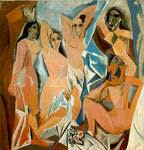William Shakespeare’s “King Lear” is the greatest tragedy. It comes to Broadway with the mighty brilliant and extraordinary Glenda Jackson. She appeared in the same title role at London's Old Vic in 2016. We are blessed to have her here in New York now.
The story of King Lear is the tragedy of an old and weary king who decides to retire and just live with his daughters. He has three daughters, Goneril (Elizabeth Marvel), Regan (Aisling O'Sullivan) and Cordelia (Ruth Wilson) and he wants to divide his kingdom amongst them with a condition. They must declare their love for him openly and in front of everyone. Goneril and Regan uses flowery language and praise him to the heavens but Cordelia the youngest and the most sincere daughter speaks the truth and tells him that she will love him as much as a daughter should love her father who brought her up, loved and fed her, and nothing more. The king is outraged and banishes her. The Earl of Kent (John Douglas Thompson) who wants to speak on Cordelia's behalf is also banished.
King Lear's daughters show their ugly faces and intent eventually. They treat the old king abominably, reduce his staff from one hundred men to almost one. This causes him to storm out on one of the worst stormy nights. The king is now homeless on a heath soaked by the rain and hail. He is only accompanied by his fool (Ruth Wilson in a double role) and the Earl of Kent disguised as a servant, who takes him to a cave for shelter. Also in the cave are the King’s old friend the Earl of Gloucester (Jayne Houdyshell) who is also abandoned and unbeknownst to Gloucester is his legitimate son Edgar in the guise of Mad Tom (Sean Carvajal).
King Lear's tragedy unfolds by making one foolish mistake to satisfy his royal ego and he now realizes how big a mistake it was and how he banished his young and loving daughter Cordelia for not flattering him falsely. Eventually Cordelia who is married to the king of France comes back to rescue her father.
I cherish this play, but not the way it has been staged here. The play is directed by San Gold who loves to overcrowd the stage. There are tables, chairs, flags, even a life size ceramic Lion near Lears throne and roaming musicians.
Lear's staff is sipping tea and drinking champagne all along, and I am wondering: What's the occasion? What are they celebrating?
All this stage business doesn't work. Actually it distracts.
But luckily we have Glenda Jackson here who surmounts every obstacle and howls like a tiger herself with such clarity and control and concentration that we need no other fake lion for effects.
Every word Ms. Jackson speaks is like jewels and pearls coming out of her mouth. She is small and very fragile but her performance is the most powerful I have ever seen on any stage in the world. I am amazed that she is not nominated for a Tony award.
Other actors who give wonderful performances are, John Douglas Thompson, Ruth Wilson in both roles and Jayne Houdyshell.
Elizabeth Marvel and Aisling O' Sullivan are not very convincing as real sisters
because of their varied accents.
because of their varied accents.
The production also has a string quartet with original music by Philip Glass. This is totally unnecessary.
But once again, the biggest problem for me in this production is the set. The stage is so loaded with extra stuff that if Glenda Jackson wasn't a powerhouse we will never find her, she would be hidden behind the lion. But how can one hide a real lion of talent behind a fake ceramic one?
This is the third time I have seen Ms. Jackson on stage, “Strange Interlude”, “Three Tall Women” and now in” King Lear” as Lear and Oh! boy, I am a real lucky and blessed woman.
Beyond HAPPY FACE for Glenda Jackson and MIXED FACE for the production.
Beyond HAPPY FACE for Glenda Jackson and MIXED FACE for the production.





